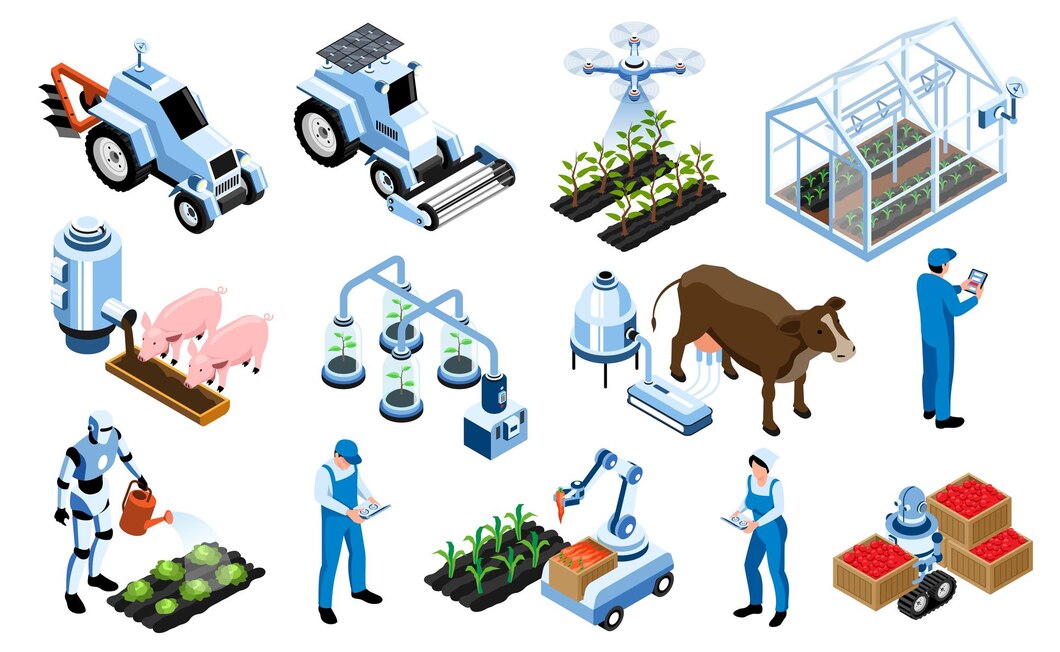Table of Contents
Introduction
So, you’ve just completed your 10th grade, and you’re considering a career in agricultural engineering. It’s an exciting field with a promising future, and I’m here to be your guide, just like an older sibling would. In this blog post, we will delve into the world of agricultural engineering, guiding you through the courses, subjects, and steps to embark on this rewarding journey. Let’s explore the path to becoming an agricultural engineer.
Understanding Agricultural Engineering
What Is Agricultural Engineering?
Agricultural engineering is a unique branch of engineering that merges principles from various domains, including agricultural science, mechanical, civil, electrical engineering, and computer technology. This blend of knowledge is used to design and enhance farming equipment, structures, and processes.
The Importance of Agricultural Engineering
Agricultural engineers are the unsung heroes of the farming world. They play a pivotal role in ensuring the efficiency, sustainability, and productivity of the agricultural industry. Their work directly impacts food production and environmental conservation. Without them, modern agriculture as we know it would not be possible.
Step 1: Preparing for Agricultural Engineering
Choose the Right Educational Path
Your journey starts after completing the 10th grade. It’s essential to choose the science stream with a focus on mathematics, physics, and chemistry. These subjects are the building blocks for a successful career in agricultural engineering.
Understanding the Basics
A strong foundation in mathematics and science is crucial. Make sure you grasp these subjects well during your high school years. They will serve as your toolbox for solving real-world agricultural problems later on.
Step 2: Selecting the Right Course
Pursue a Bachelor’s Degree
To become a certified agricultural engineer, you’ll need to earn at least a bachelor’s degree in Agricultural Engineering or a related field. Here are a couple of relevant undergraduate courses:
- Bachelor of Technology (B.Tech) in Agricultural Engineering: This is a comprehensive program that covers a wide range of topics in the field.
- Bachelor of Science (B.Sc) in Agricultural Engineering: This program provides a strong foundation in both agricultural science and engineering principles.
Step 3: Eligibility and Entrance Exams
Meeting the Requirements
Different colleges and universities may have specific entry requirements, often related to your high school marks and the subjects you’ve studied. Make sure you meet these criteria to gain admission.
Common Entrance Exams
To secure a spot in a reputable institution, you’ll likely need to take entrance exams like:
- JEE (Joint Entrance Examination): This is a widely recognized test for engineering programs.
- CET (Common Entrance Test): Many universities use this exam for admissions.
Step 4: Pursuing Postgraduate Studies
Enhance Your Skills
While a bachelor’s degree is sufficient to start your career, you can choose to pursue a master’s degree in Agricultural Engineering to specialize in a particular aspect of the field. This can open up more advanced career opportunities and research options.
The Future Scope of Agricultural Engineering
Bright Prospects
Agricultural engineers are in high demand, and the future looks exceptionally promising. With the world’s growing population, there’s a continuous need for innovative farming techniques and sustainable practices. This field is on the front lines of addressing global food security challenges.
Career Opportunities
Agricultural engineers can find employment in various sectors, including:
- Agricultural Machinery Manufacturing: Design and develop the next generation of farming equipment.
- Environmental and Resource Management: Contribute to sustainable agricultural practices and resource conservation.
- Government Agencies: Work on policies and regulations related to agriculture.
- Research and Development: Explore new technologies and methods to improve farming efficiency.
Step 5: Job Roles
Exploring Career Roles
As an agricultural engineer, you can take on various roles, such as:
- Farm Equipment Designer: Innovate and create machinery that revolutionizes farming.
- Soil and Water Conservationist: Implement strategies to protect these valuable resources.
- Crop Process Engineer: Optimize the way crops are grown, harvested, and processed.
- Environmental Consultant: Offer expertise on environmentally sustainable agricultural practices.
Step 6: Day-to-Day Work
On the Job
Your daily tasks may include designing farm machinery, ensuring soil and water conservation, optimizing crop processes, or consulting on environmental issues. It’s a dynamic field that allows you to make a tangible impact on agriculture and the environment.
Conclusion
In conclusion, if you aspire to become an agricultural engineer, the path involves selecting the right educational stream, choosing the appropriate courses, and potentially pursuing further studies. This field holds a promising future with diverse career opportunities. So, gear up, study hard, and become a part of the dynamic agricultural engineering world. Your journey as an agricultural engineer is just beginning, and there’s a world of possibilities waiting for you.
FAQs
- Can I become an agricultural engineer after 10th grade?
- Absolutely! By choosing the right subjects and courses, you can work towards a career in agricultural engineering after 10th grade.
- What are the core subjects in agricultural engineering?
- Core subjects include agricultural science, biology, physics, mathematics, and engineering courses.
- Are there scholarships available for agricultural engineering students?
- Many institutions and organizations offer scholarships to talented students pursuing agricultural engineering.
- What skills are essential for an agricultural engineer?
- Skills such as problem-solving, critical thinking, and a strong understanding of engineering principles are vital for success in this field.
- Is agricultural engineering a sustainable career choice?
- Yes, it is. With the world’s growing population, the need for sustainable agricultural practices and innovative farming techniques continues to grow.
For more courses and in-depth information, you can visit our Courses Page and explore other options.
Image by macrovector on Freepik


Leave a Reply